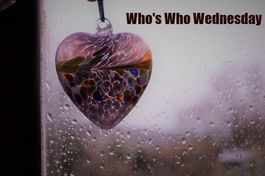 Welcome to my first installment of Who's Who Wednesday. Twice a month, I'll introduce you to some of the great people I've met through writing. I'll ask the same five questions and let you know how we're connected. Connections are an essential part of staying strong on the path to publishing. Having people who understand what you're going through and have been through it themselves is a huge support when you're feeling unsure, need a boost, or want to share something awesome. I'm very lucky to have so many great writing friends and I hope that I'm able to give back even a portion of the support others have given to me. 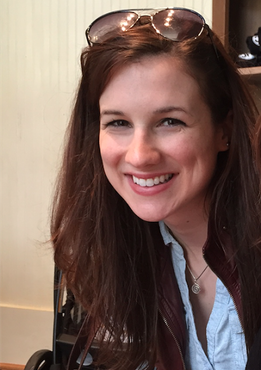 This week's Who's Who is Lindsey Duga. Lindsey is not only a fellow agency mate (Literary Counsel), but also a fellow Entangled Publishing House author. I'm currently reading one of Lindsey's manuscripts right now and I can tell you, she has a wicked way with words. Her world building actually pulls you right inside of the story. Lindsey was kind enough to take part in the release party I had for More than Friends and through that, I learned that she is also a very talented artist! Check out the drawing she did for my main character, Gabby, from More than Friends. You can learn more about Lindsey through the interview below and by visiting her at her website. Thanks for being my first, Lindsey ;) Who's Who with Lindsey DugaWhat you write: I enjoy writing both Young Adult and Middle Grade, and with the exception of strictly contemporary, I write all subgenres. I’ve written fantasy, urban fantasy, and science fiction. I’m even hoping to explore historical fiction in both YA and MG in the future. What I really love doing recently is crossing genres. For instance, I have a middle grade book that is technically sci-fi, but could just as easily be categorized as a mystery or a sports book since the world, plot, and characters have aspects of all three. I’ve never tried to write for adults because, frankly, the thought terrifies me. Apart from the occasional thriller and high-fantasy, I don’t read many adult novels, but I read TONS of young adult and middle grade books. And of course, what I read influences what I write and how I write it. Influences: So. Many. Things. Being a huge NERD, I derive almost all my stories from a random mash-up of books, cartoons, TV series, movies, video games, and comics. I could literally go on and on about what show has given me an idea for what story, but instead I’ll try and be concise and just list them out:
Favorite writing snack and beverage: I don’t usually eat when I’m writing unless it’s candy or something I can easily pop in my mouth and forget about. All of my favorite snacks make my fingers messy—not great for typing on a keyboard. Almost all my writing sessions start with a cup of tea. Lots and lots of tea. I’m not a coffee drinker, so I make sure at least half the tea in my cabinet has caffeine. Some of my favorite tea blends are: African Autumn, Jade Citrus Mint, Youthberry & Indonesian Gold, Ginger Lemon Mint, Turkish Apple, and Japanese Cherry. My all time favorite drink while writing is a Starbuck’s Green Tea Frappuccino made with soy milk. I get one every Sunday at Barnes and Nobles when I’m writing or editing. Because they’re $5, I only allow myself one a week. I look forward to it as much as I do writing—it’s like my special treat for making it through the week. Hardest thing about writing: There are a lot of things about writing that are difficult, like developmental edits where you worry about one change affecting almost everything else in the book, or pushing through the block you’re having just so you can finally finish that first draft. But I’d say the hardest thing is that writing is, by nature, a solitary activity. Don’t get me wrong, I love putting in my earphones and banging away at my keyboard with zero human interaction for like three hours…if I’m on a roll. But if I’m not? Well, it helps to overcome that writer’s block, or talk about your edits, or your book cover, or your marketing plan, with someone who understands where you’re coming from. It’s hard to want to go on and on about your book when you might not have anyone available to listen or help you. Which, of course, is why critique partners and beta readers are so critical. I honestly don’t know where I’d be without them. If only just so I can randomly text them and say, “I’m obsessing over my new character. He needs a name. HALP.” And they’re there with a list of names we can go through together. After all, it’s FUN to talk about your story, and it’s hard when there’s no one there to help. What you’re working on now: Typically I have two projects that I work on at a time: one that I’m editing and one that I’m drafting. The one I’m editing is another middle grade book and that crosses genres. It’s about a brother and sister team who are phantoms sent from the Netherworld to steal artwork in post-Victorian London. So it’s a little bit historical, fantasy, paranormal, with a touch of horror. I’m drafting a YA paranormal romance dealing with nature spirits set in the Smokey Mountains of Tennessee. I’m only a quarter of the way through, and have a very rough outline, so by the time my draft is done, it could be a completely different book. …And separate of these independent projects I’m also working with my editor, Lydia Sharp, on my debut novel that’s coming out Summer 2018 with Entangled Teen. My book is a YA Fantasy in which a princess, trained to use her kiss as only a magic-enhancing weapon, must fight evil alongside a prince who is determined to prove that love isn’t just a fairytale. If you’re interested how this book came to publication, you can check out my blog post about it here. Also, follow me on twitter and instagram! Thanks for having me, Jody! Thanks for taking the time to answer my questions, Lindsey. I look forward to reading your debut from Entangled. Surprisingly, the hardest part of writing, is not writing. In Amy Poehler's Yes Please, she titles her preface "Writing is Hard". But even as she talks about this, she says she can write a scene or skit in record time. Because putting the words down on the page is not always the most challenging part. It's everything that comes with it, after it, that can be soul-sucking hard. But if you want it, like really want to hold your book in your hands (and yes, e-books count), you have to accept that no matter how easily the words come, there is so much more to writing a story than getting words on a page. E-D-I-T-I-N-GNot gonna lie: EDITING IS HARD. It feels like putting together a 1000 piece puzzle, knocking it over, and starting again. But not being allowed to put the pieces back in the same order you did last time. And maybe not using all of the same pieces. And maybe not even using the same puzzle. Sometimes it's like scrapping the first puzzle, except for the corner pieces, and going with a brand new one. You're not even sure it's possible to do that. Because IT'S HARD. But it's satisfying to see something that you love, a piece of you, become something more, something bigger. Something that elicits all of the feelings in your readers that you meant to. And, rarely can you do that the first time around. Making connections without being annoying I'm still working on this one. I've made so many amazing and wonderful connections and I don't use those words lightly. The people I've met since I started writing are so supportive- offering advice and feedback and direction. I've developed what I know will be lifelong friendships with many people and there are many that I truly hope to meet in real life. However, I often feel like the tag along, the third wheel, the annoying girl who asks a deliberately complicated question in class when the professor says you can go early if there's no more questions. NO ONE HAS MADE ME FEEL THIS WAY. Which reminds me that my biggest problem is that I find myself annoying. I can't get out of my brain and it would likely be awkward if I did. So I annoy myself and then read into every little thing that means nothing and end up annoying myself more. Make connections. Be yourself. Chances are good, most people will like us just fine. Trust them. They're cool people that you admire and they don't have to help you. Most people engage and connect because they want to. And if you're genuine, open, and considerate, there's really no reason that they would find you a nuisance. Unless you're being annoying. Listening to feedback AND ACTUALLY USING IT This is a funny one because I didn't think I was bad at listening to or using feedback. When someone would say that I might want to change something or rethink it, I'd simply tell them why that's not what worked in my story. I listened. I heard. And they were wrong. I have improved in this area. Mostly. It is hard to take feedback and even harder to change things in a story that matters to you. But those people above, that you trust and admire? If they're willing to give you their opinion, listen. If your best friend is an insatiable reader and gets stuck on your plot line and wants you to succeed so therefore mentions it, LISTEN. You don't have to take all the advice or everyone's advice. But you have to be open about accepting constructive criticism if you really intend to grow and actually want to sell your work. If you believe the support group you have wants the best for you, then trust them. But trust yourself too. Ultimately, the story is yours. But if you plan to share it, you have to see it from other points of view. Staying positive I write notes to my daughters on their bathroom mirror every week. Sometimes I use erasable marker, sticky notes, or scraps of paper. Words matter. I love them. So I share them with my girls in this way and many others. This week I wrote, "If you tell yourself you can't do something, you won't. So tell yourself you can." That sounds all poetic and inspiring (and hopefully they're not someone else's words-- if they are, thank you for the quote) but if you were to check my iMessages, Facebook messages, or Twitter direct messages from this week, you would see the irony in ME writing that quote. Because in the last couple weeks, I've told myself repeatedly that I can't. Amy Poehler has a chapter about the plain girl versus the demon. The demon is the voice we all have that makes us feel negative about ourselves. (BTW: this is such an awesome chapter of writing. You should read it.) The thing about that voice is, you have to make them be quiet. They won't all the time, but you at least have to try to talk over it. One thing I realized is that I was measuring my success in the wrong way. Instead of letting all of the things that are happening sink in, instead of truly celebrating, my mean voice keeps telling me all of the things I have not yet achieved. I have a book coming out in April with my co-writer, Kara Leigh Miller. We have a second one coming out later in the year (if she'd just focus-- don't worry, that wasn't mean. She will laugh). And I have a picture book coming out in January 2016. My mean voice shouldn't get to talk for a few months at least. But it interrupts me constantly. We have to not let it. Facing rejection There are thousands of quotes online about failure making you stronger, about great people before you who did not succeed the first several times they tried. Those stories are there for a reason. Instead of getting caught up in the fact that you got rejected, it's time to start asking why. I'm looking back now at a story that I love and was very personal to me. It got lots of attention and several full requests. But it ultimately got rejected. There is absolutely no point in focusing on this detail. Instead, I have to look at WHY and change it. So I'm going to go do that and if it still gets rejected, I have to decide if I want to shelve it for a while. I didn't think I could handle rejection well. But I'm doing okay. It really doesn't break you. If you want it badly enough, rejection will make you fight harder. Except on the days that it just completely sucks and you can't stay positive. Then you turn to those people that have all been there, the ones who will support you and pull you back up. Not too long ago I messaged a lovely writer friend and I didn't even say I was going to flat out quit. I was just being miserable and sad. And her message said: STEP AWAY FROM THE LEDGE. It made me laugh and I thought, not only does she get it (because that's exactly what it felt like) but she's right there. Be that person for someone else. I feel so lucky to have those people that help me face it and move on to be better. And, they make you laugh. That fixes a lot of things. Other than actually putting the words on the page, what is the hardest part for you?Thanks Jamie Rae for tagging me in the Writing Process Blog Tour. Jamie is one of those cool people who does a little bit of everything and does all of it well. She's a great writer and her book, Call Sign, Karma will be released in 2015. I am lucky enough to call her my critique partner and friend. She's got incredible insight into what makes a story work, which is why her writing is so strong. You can find Jamie on Twitter, Pinterest, Facebook, and also the following websites: Inklings Literary Jamie Rae Writes Okay. Onto my own process...if you can call it that. 1. What are you working on? Currently, I am outlining another novel connected to Angel's Lake, Minnesota, the fictional town I created for Forever Christmas, A Not so Lonely Christmas, and Falling for Home. Also, I just finished developmental edits on a medical romance titled, Dangerous Love, that I co-authored. Soon I'll be working on the next round of edits for that. It comes out in March 2015. 2. How does my work differ from others in the genre? Hmm. I think my work is a combination of styles. It's not just romance, it's not just happily ever after-- it's a look at how hard it is sometimes to get to happily ever after and how, when you get there, it's not always what you envisioned, but somehow it's exactly what you want. 3. Why do I write what I write? Because I'm addicted to happily ever after and "awww" moments. I re read all my favourite parts in books constantly. It's what I enjoy reading and it's what comes to mind when I start to write. 4. How does my individual writing process work? The word process suggests something with organization. I'm not sure that I have an actual process. I read a lot. I get ideas. I then text the ideas to my BFF who tells me if the idea is ridiculous, overdone, has potential, or could go somewhere. I message with my friend and CP who is constantly supportive of everything, but also helpful and good at guiding me. Then I write. I write exceptionally fast when I have the ideas in my head. On average, it takes me a couple of months to write a book that I know where it's going. It's a bit longer if I'm struggling on the plot. I'm getting better at planning, though I do this more when I'm stuck on whether an idea actually has enough ability to grow into a novel. In writing, there's two labels: plotter and pantser. I am both. This reflects my personality as I find it hard to make decisions and am frequently on the fence about many things. When I'm writing, or awake, I have diet Pepsi close by. On average, during a writing session, I answer 3, 234 questions from my children who will suddenly need my attention when my computer is open. I always have Twitter and Facebook open, which is why I don't get more done. And I do most of my writing at the kitchen table. That's it. Not really a process, but that's how I roll. Now...onto the others. First, I am tagging my co-author Kara Leigh Miller Kara Leigh Miller is an author, an editor, and, to me, a great sounding board. I met her when she ran a contest through her website. The winner would co-author a book with her, a medical drama, and that book would be published by Anaiah Press, where she is a Managing Editor. Yes, I won. This is how I know, first hand, that she is a great writer, a patient co-author, and a very funny person. She's also a mentor in this years PitchWars! You can find Kara on Facebook, Twitter, and on her website. She has not yet succumbed to Pinterest but, eventually, she will fall prey to that as well. You can find out more about Kara's books on her website: Kick Start Your Heart Romance. Up second is the lovely Joanne Macgregor. Joanne is a both an adult and young adult author. I connected with her some time ago and found that she is so easy to talk to, so sweet, and charming, that it's impossible not to want to be friends with her. Recently, she's been promoting her psychological thriller, Dark Whispers. She has five young adult books out, including one titled: Harry on the Couch: A psychologist's reading of Harry Potter. You can find Joanne on Facebook, Twitter, and on her website. For my third tag, a connection made through PitchWars, Jodie Andrefski I chose to tag Jodie for several reasons (after I asked her, which probably seemed a little weird to her since I'd just "met" her): we have the same name (spelled differently), she loves dessert (that's my main food group), and she's a SPN fan (which I'm trying to not be too much of a scaredy cat to watch). The main reason, though, was because I'd connected with her through PitchWars and it reminded me how great the Twitter writing community is. She put up one of her #firstlines on Twitter and it was awesome. I commented and thus the mutual following began. Twitter is a great place to connect with others who share your interests, goals, and obsessions. Jodie is a Young Adult writer, as well as an intern at Entangled Publishing. You can find her on her website-- awesomely named 2000 Words, and on Twitter. Some of the best books you'll read are not out yet, written by authors you don't yet know, but one day will. Now it's their turn. Thank you for participating ladies.
I told myself I wouldn't enter anymore contests. I was done with this route, even though I've enjoyed them. The roads we travel have a funny way of leading us where we're meant to be-- or we just tell ourselves this so it feels okay to end up where we do. I didn't enter #PitchWars last year (though I did participate in Pitmad) so I didn't really know what it was all about. You can click the link above if you'd like to find out. Basically, it's an amazing opportunity to work with a mentor-- someone who knows the ropes and wants to help you strengthen your writing (your writing that has already been edited and revised--so not your first draft) and take it to a higher level. Today, on Twitter, I saw people asking, why a mentor would give their time? I knew the answer even before reading the many replies. The writing community on Twitter is amazing. I've said before that I've never known another industry where the "competition" is also your strongest support. These people want to see you succeed. When one person does, others are genuinely happy for them. It's an amazing thing to be a part of and the fact that the mentors are willing to give that back, is not surprising to me. This is just one way I've seen the writing community give back over the last two years that I've been part of it but there are endless examples from Street Teams to giving reviews to just giving you a boost when you need one. The organization and time that goes into these things is huge---if you haven't thanked Brenda Drake for providing these opportunities, you should. I always think that we're very lucky to live in an age where so much is at our fingertips. Because of that, and because I want to share too, as others have shared with me, I'm posting some links to the sites I'll be hanging out on while I pour over my manuscript obsessively to make sure it's perfectly ready to pitch. Good luck to everyone. Writing tips at novelicious.com I just found this site via Facebook and Twitter but I like the tips and tricks. Brenda Drake's website will be visited frequently because it gives all the details, plus has the link to all the mentors. Click those links and check out their sites. For real. Who better to tell you what they want than the mentors themselves? A friend once sent me a small guide with excellent tips on how to go through your manuscript. It was from this fantastic and helpful site: Inspiration for Writers I already saw this on Twitter today but this is a link to the site that helped me write my synopsis Honestly, one of the most helpful things to do is visit sites of writers you respect. Most of them have blogs, tips, advice. Some of my favorite helpful sites are: Daily Dahlia (obviously) Jody Hedlund, Lauren Spieller, and Ava Jae And if you still have questions, concerns, worries, or wonders, it is not as scary as you think to reach out to anyone involved and just ask. In addition to being rather funny and charming, the people you'll meet are extremely nice. Just like one of us. ;)
sub·jec·tiv·i·ty [suhb-jek-tiv-i-tee] noun, plural sub·jec·tiv·i·ties for 2. 1. the state or quality of being subjective; subjectiveness. 2. a subjective thought or idea. 3. intentness on internal thoughts. 4. internal reality. I never know how much to say about anything because sometimes you learn lessons too late, after you've already made mistakes and I don't like the idea of wrecking something for myself before it even happens. Every rejection letter that you get probably has some variation of the phrase "please continue to send your work out as my opinion is subjective". You try really hard to believe that; to tell yourself, it's just not right for that agent. Sometimes though, it's hard to keep going when that subjective opinion seems to be shared by more than a couple. It's important during the times that you feel like this to reach out to the people that will push you forward. Also, to remind yourself why you write. You also have to keep telling yourself that it really, really, truly, absolutely IS subjective. Even though I let myself believe otherwise last week, here's a look at my week to show you how I was reminded. Monday: a kind letter from an agent saying that I write well but she didn't connect. Okay, I can handle that. I can focus on the "you write well". Tuesday: a "your work isn't right for us" letter. Okay. Fine. Played on Facebook, connected with writer friends to remind myself that this industry is subjective. Was asked to do a review by someone I respect immensely. Okay. Because I can write. Right? Wednesday morning: a "thank you for submitting to us but your work isn't what we're looking for" response to an email I sent YESTERDAY. Wow. Okay. Um. Maybe I need a new hobby? Or I can just read. All the time. Wednesday evening: letter in the mail (like in an envelope and everything) from Blue Mountain Cards. The letter told me that one of the poems I had written had been chosen ("among hundreds") to move onto the next stage. Moral? It really is a subjective industry. Overwhelmingly so. What can you do? If it matters to you, keep going. Keep writing. Connect with other writers because they have the same stories that you do. If you want it bad enough, you have to keep pushing ahead. Remind yourself of what you have done. Write it down and look at it so that the next time you wonder if you don't understand the meaning of subjective, you can read over this list of achievements and feel good. Because regardless of anything else, if you're writing, if you're connecting with other writers and improving, learning to be better, becoming better, then you are succeeding. And eventually, that persistence is going to serve you well.
As part of the release for Dahlia's novel, Behind the Scenes, she has asked that we share a little peek at what "behind the scenes" looks like for us, as writers. Every writer is different, not just in style and voice, but in how they plot and plan, the space they work in, maybe even the time frames they write in. For me, writing is a little like breathing; it tends to happen while I'm in the middle of doing everything else. I've heard rumors that some writers have a space for themselves in their homes where they go to write all the words. In my mind, these dreamy spaces have shelves full of books, a comfy chair at a beautiful desk, Maroon 5 and Matchbox 20 on shuffle and a door that CLOSES. In reality, however, my writing space looks like this: What do you see? A lovely surface, yes. But it's my kitchen table. While there's nothing wrong with that, at all (I totally love my kitchen table), I can assure you, there are no doors that close the space off and give privacy or quiet. I've got a diet Pepsi beside me at all times. After 4 p.m. I switch to water. But diet Pepsi is my coffee, tea, whatever others drink to provide sanity and clear eyes. You'll note the little blue chair in the background. That's where my eight year old is supposed to sit and keep herself busy while mommy writes. My eleven year old is an avid writer as well and she works on the computer downstairs. However, my eight year old just piles her stuff on her workspace and, instead, shares mine. Sometimes I can put in ear buds so I have the music going, but this does lend itself to a lot of shoulder tapping to get my attention. Most of the books I'm surrounded by belong to my daughters, as mine are mostly on my kindle. And they're not on shelves-- almost everywhere, except shelves. Still, in the last two years, I've written Forever Christmas, A Not So Lonely Christmas, Damaged, Dangerous Love, and Falling For Home. So something is working. Maybe I'm just one of those people that thrives in chaos, though I really don't think I do. But I don't mind one bit typing away to the sounds of my daughters laughing, another episode of Good Luck Charlie, the dogs playing, my husband watching TV (sometimes the Good Luck Charlie episode that is on) or any other sound that says I am in my own home, surrounded by the people I love most, doing what I love to do. Whatever your space, whatever your method, if it works, why change it? Though, this doesn't mean I would turn down a beautiful office with patio doors opening onto a gorgeous terrace overlooking a lake. But for now, I'll make do with the kitchen table command station. A couple of fun facts to amuse you and possibly embarrass myself: 1. My husband often walks into the room and asks if I'm okay because I am making odd faces at the computer. He says that I actually move my lips as though I am speaking the dialogue I am typing. 2. I rub my feet together constantly when I am sitting. I don't mean to. I don't know why. It's weird and I stop myself when I realize I'm doing it. Then I start again. 3. My daughters find it very funny when they look over my shoulder now and again and see the "F" word. They get a funny look on their faces and giggle. and now for the Behind the Scenes you came for, let me tell you about Dahlia Adler's new book 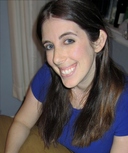 High school senior Ally Duncan's best friend may be the Vanessa Park - star of TV's hottest new teen drama - but Ally's not interested in following in her BFF's Hollywood footsteps. In fact, the only thing Ally’s ever really wanted is to go to Columbia and study abroad in Paris. But when her father's mounting medical bills threaten to stop her dream in its tracks, Ally nabs a position as Van's on-set assistant to get the cash she needs. Spending the extra time with Van turns out to be fun, and getting to know her sexy co-star Liam is an added bonus. But when the actors’ publicist arranges for Van and Liam to “date” for the tabloids just after he and Ally share their first kiss, Ally will have to decide exactly what role she's capable of playing in their world of make believe. If she can't play by Hollywood's rules, she may lose her best friend, her dream future, and her first shot at love. Doesn't it sound awesome!!!!!!!!? You can find it on Goodreads, Amazon, B&N, The Book Depository, and Indiebound just by clicking on the links provided. Visit Dahlia's website
There are things I want to say and share but I can't. Not yet. But because I'm antsy, I want to share something so I'm sharing some of my favorite words and quotes by others via my pinterest board. Words have an incredible power to soothe, hurt, heal, inspire, build up, tear down, linger, and last. That's why how we use them, where, and when matters so much.
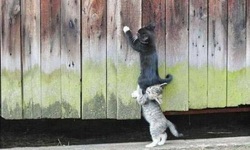 A few weeks ago, Kara Leigh Miller let me know that I was chosen to co-author a book with her through Anaiah Press. The news of this was very exciting and a little nerve wracking. How do you co-author? What if you disagree? Who writes what? Who gets the good scenes (the kissing ;))? What if your styles don't mesh? What if your pacing doesn't mesh? If you think that's a lot of questions, you should see how many pop into my head for something that requires me to interact in person. Or if I have to go out for the evening. Another story. It turns out that all of these questions were a moot point (not moo- though I, like Rachel, see an odd sense in Joey's thoughts). Kara and I mesh very well. Our pacing aligns, we split the kissing scenes, we both write the parts we feel strongly about and the parts in between, and so far, a little bit of conversation back and forth allows for us to resolve things we see differently. It is a very unique experience to co-author with someone. I think it is similar to sharing a classroom. You feel a certain sense of ownership and protectiveness that you have to let go of. This is not an easy thing to do for teachers or writers...or women...moms...I may be in some serious trouble here. Actually, I think I'm sitting in a pretty good spot. I am slowly learning that by releasing a bit of the need for control, I am becoming stronger in my writing. That process started some time ago, by taking advice from critique partners, agents, and industry professionals. By looking at strong examples of writing, particularly in areas I found were my weaknesses. Though writing is often said to be a solitary activity, I have not found that. Particularly when I have Facebook and Twitter open while I'm writing. Or if I write while my kids are awake. Good writing requires connecting with others, being open to opinions, criticism, feedback, change, and growth. Again, kind of like teaching. Even when you spend your time planning how things should and could work out, they often don't follow the outline. This speaks to both writing and life. While I had my thoughts focused in one direction, I wound up on another path. This one is leading me to something I never anticipated and I truly look forward to seeing how it turns out. It doesn't change what I want for my own writing, but it has opened a different door that I think will make me a more versatile and well-rounded writer. That, and maybe it'll distract me while I wait for those other doors to open as well. Writing has always been something that has come easily to me. I whip off genuine, personalized report cards in a day. I can write a blog post in under ten minutes. I wrote my first novel (without edits) in four weeks. When the story is there for me, it's not difficult to get it down on paper. That's not bragging-- it's just the way I've always written. Having said that, in the past, my writing has always been for me so it hasn't mattered that there were glitches in the plot or character inconsistencies. Now that I'm actively trying to make my stories stand out above others, to make my writing catch the eye of an agent, what was once good has to be spectacular. Good is not good enough and speed doesn't count for anything.
It's difficult to separate yourself from your writing long enough to see the faults and weaknesses. I'm okay with having them and I'm okay with fixing them but the thing that is hard for me is narrowing in on where they are. This is why it's so important to utilize the feedback that anyone, particularly anyone in the writing/publishing/editing/agenting industry, has to offer. The people that I have "met" in the last year through social media and because of putting myself out there as a writer, have been incredibly supportive and kind and positive. I feel as close to some of them as I do to some of the friends that live down the road from me. I believe you can establish strong bonds and friendships via social media and email. It's new age pen pals. The difference, however, is the personal element is removed so they can, perhaps, offer that extra bit of hard criticism you need. Why? Because even though they like all your statuses on Facebook and retweet your tweets, even though you chat more frequently with them than others who live a few minutes away, they haven't seen you cry when you get a rejection letter or laugh like an idiot when you get amazing feedback. They know you but they don't KNOW you. This can be a very good thing for a writer as it allows them to be a stronger critic. There's an element of detachment that comes with online friendship that can only be changed by actually physically meeting. And I hope that one day I get to meet some of the amazing people that have befriended me. In fact, I already have met some of them and it's a pretty awesome feeling when they're just as cool as you thought they'd be. However, until I meet the others, I can let that buffer level of detachment work in my favor. They can be just a little harsher than my best friend who has to put up with me being moody when she tells me what I know is the truth. If they don't want to deal with my irritation over pointing out something that needs fixing, they can move away from the computer. Trust me, my best friend can't. I will show up at her house cause I'm fifty shades of needy and clingy like that. So the point is, I'm going to spend some time really letting the feedback wash over me, knowing that these people who are offering me pointers and suggestions, for some reason, want me to succeed. I've said it before but it bears repeating: writers are the most supportive, encouraging group of competitors you could align yourself with. I guess it's because there can never be too many books. Or maybe it's because the same story can be told a million different and compelling ways. Whatever the reason, the writer's I've met want every bit as badly as I do to succeed. But they fall over themselves with praise, feedback, encouragement, and their valuable time to make sure I'm right there with them. For the next little bit, I will be drawing on them to help me make my work the strongest it can be. I will also be checking out as many articles, blogs, posts,and websites as I can. Here's what I'm starting with this week: http://warriorwriters.wordpress.com/2013/04/29/ways-to-create-multi-dimensional-characters-tip-1/ http://www.dummies.com/how-to/content/creating-emotional-conflict-and-tension-in-a-roman.html Any good sites you'd recommend for character development or building conflict? Share. I used to spend time on Facebook. Then it was Pinterest. Now, it's all about Twitter. My best friend had a great status when she started Twitter: Twitter is my new Pinterest which was my new Facebook. I like Twitter. At the moment, I like it a lot because in 'real life' my husband is playing air guitar to Guns and Roses so it's probably better to be looking at the computer screen. I thought I'd see how my life compares to Twitter overall. I couldn't do a fancy Venn diagram like I'd make my students do at school because I don't know how to do that on Twitter, my website, or in real life. TWITTER LIFE
What's your favourite form of social media and why?
|
Archives
May 2021
Categories
All
|

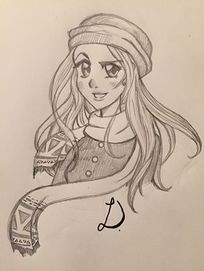
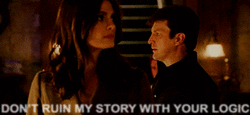
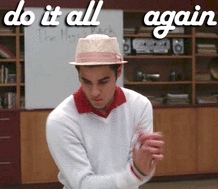
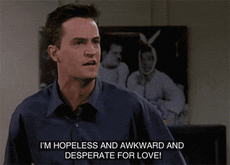
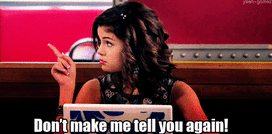
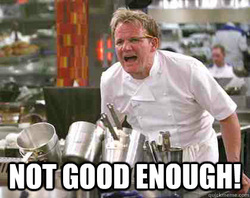
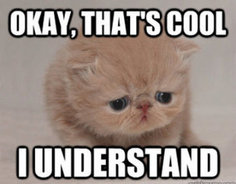
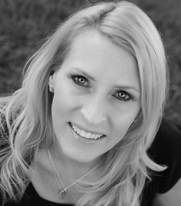
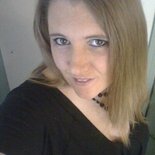


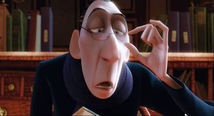
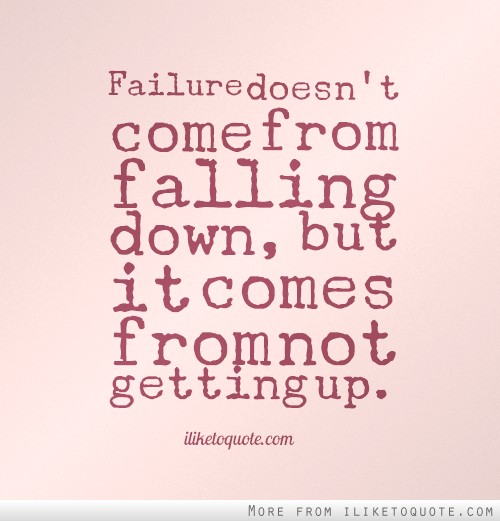
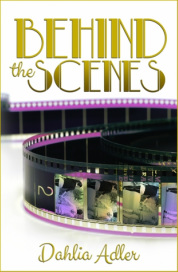
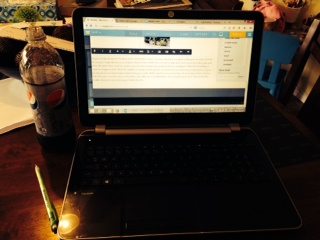
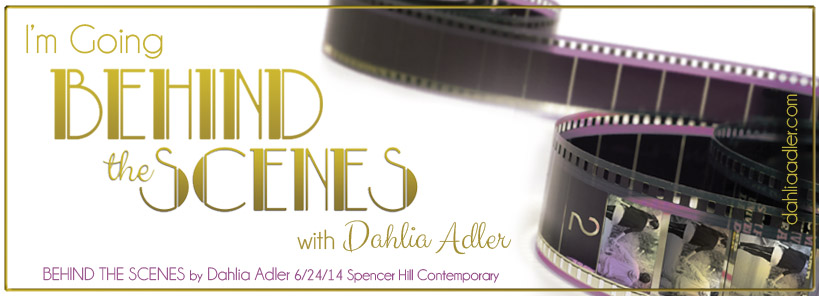
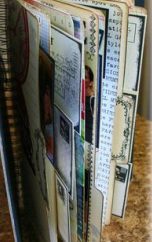
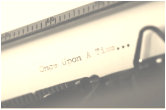
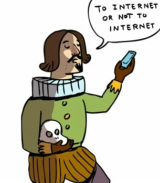
 RSS Feed
RSS Feed
